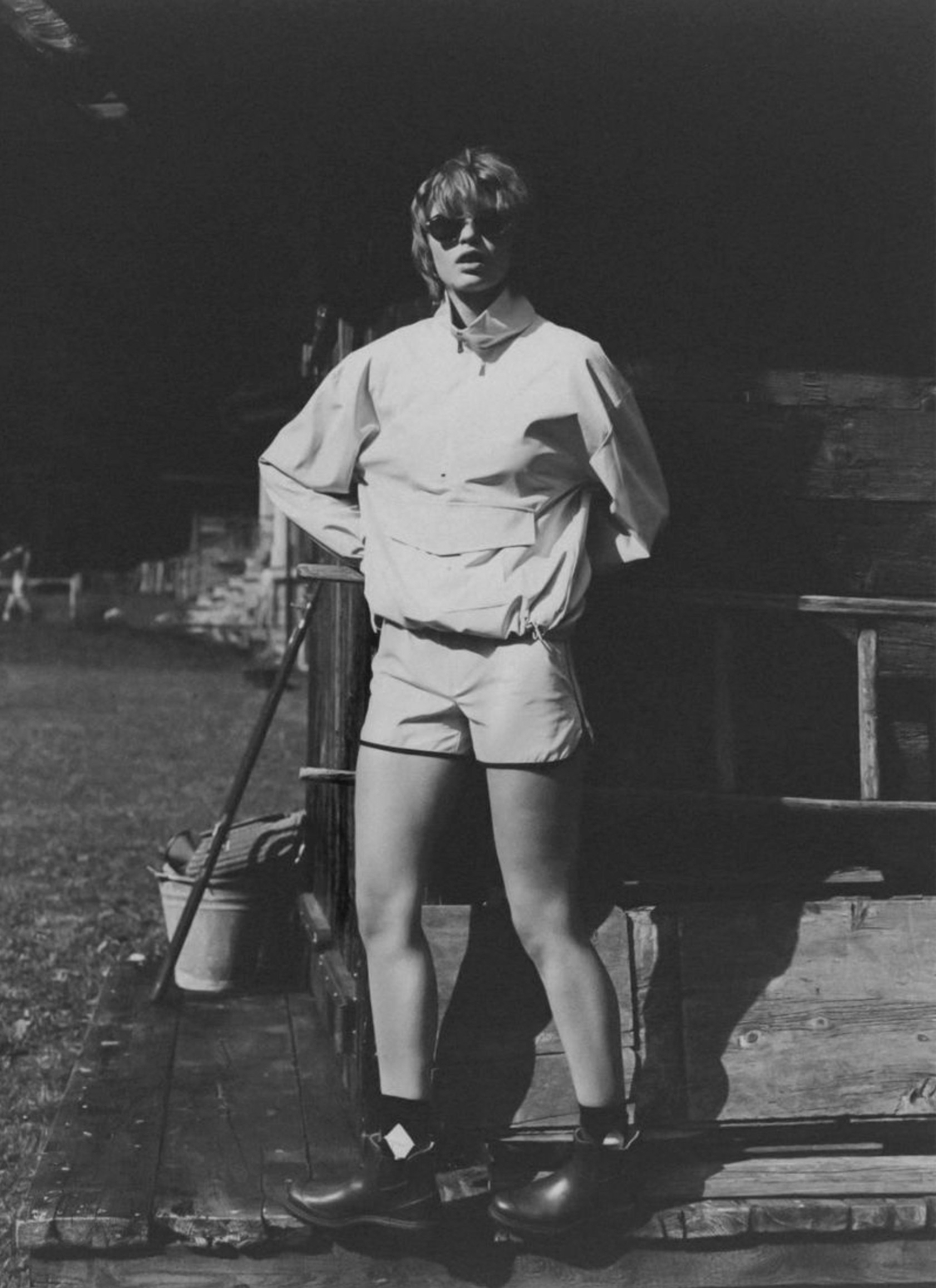'Soul Trekking' in Ancient History, Prompted by Vogue's Italia's August 2025 Fashion Story
/Model Karolina Spakowski is styled by Elisabeth Fraser-Bell in ‘Soul Trekking’, a meaningful but not widespread term used in a spiritual or personal development context. We are drowning in the overuse of the term ‘authentic self’ or authenticity, especially in the arena of politics and voter expectations.
For certain, Karolina Spakowski has a genuine relationship with nature and quiet spaces from her home in Berlin. And we know that our human spirits and bodies, too, need a relationship with nature.
Photographer Luca Campri [IG] captures Spakowski on this personal journey in which nature is a reliable and inspiring companion. Vogue Italia [IG] is exactly where we expect to discover this solitary adventure in living well — and AOC shares the details of the journey from the standpoint of wellness and spiritual growth./ Makeup by Elena Bettanello; hair by Patti Bussa
The concept of ‘soul trekking’ integrates the physical challenge of trekking or hiking with the introspective goal of soul-searching. It is distinct from ordinary travel, focusing on inner growth and perspective, rather than just seeing new places.
Soul Trekking Is Not Travel as We Know It
A spiritual or inner journey: On a metaphorical level, a soul trek can describe the process of finding meaning and purpose in life. It is a conscious, ongoing exploration of one's inner universe, which can involve painful experiences as well as joyful ones.
A trek in nature for self-reflection: Many who practice "soul trekking" use the solitude and challenge of a wilderness hike to reconnect with themselves. In this context, the journey is about detaching from modern life to gain clarity on what is truly important.
A tool for resetting and overcoming burnout: As described by entrepreneur Matt Gray, a "soul trip" or trek is a deliberate adventure in nature to "reset the soul." It can help those experiencing burnout or feeling overwhelmed by life's demands to slow down and regain a sense of self-awareness.
A framework for personal growth: The process is often depicted as a lifelong journey with highs and lows, all of which are essential for growth and deep learning. The physical act of walking a trail is seen as a way to confront challenges, build strength, and gain a new, clearer perspective on one's life.
Pursuing the Universe Within Ourselves
The Microcosm — Macrocosm Analogy: Over tens of thousands of years humans and early humans have looked upwards and outwards into the universe as a whole. This is the macrocosm or the “great world” view.
The ancients believed that what is true for the great cosmos is also true, in minature, for the human soul. This is the microcosm or the “little world”, which is the human being, reflecting the same structure and order as the universe.
Once again we intersect with Carl Jung and the Jungian Center for the Spiritual Sciences. No systematic theory or collections of spiritual belief are woven as deeply into Anne of Carversville as the beliefs of Carl Jung.
Historical Examples of this Ancient Concept Appear All Over Antiquity
Know Thyself: Inscribed on the Temple of Apollo at Delphi, this maxim was a central tenet of ancient Greek thought and highly valued by philosophers like Socrates. The saying implies that self-knowledge is the path to understanding universal truths.
Platonism and Neoplatonism: In these traditions, the universe was seen as having a divine "world soul," with the individual human soul serving as a miniature reflection of it.
Advaita Vedanta: This Hindu school of thought teaches that all reality is an expression of a single underlying consciousness, called Brahman. According to this view, the individual soul (Atman) is identical with Brahman, and realizing this truth leads to liberation.
Ayurveda and Yoga: Indian medical and spiritual philosophies use the microcosm-macrocosm concept to explain that the same cosmic principles that govern the universe also govern the human body and its energetic systems, such as the chakras.
Hermeticism and Alchemy: The phrase ‘As Above, So Below’ is a well-known Hermetic principle that encapsulates the microcosm–macrocosm analogy. It is the idea that the patterns found in the heavens are also replicated on earth and within the individual.
Chinese Philosophy: Ancient Chinese philosophical systems also drew parallels between the human being and the cosmos, viewing the individual as a reflection of the larger, ordered universe.
Christianity: While the Vatican has never issued a specific statement on thinkers like Carl Jung, they — along with other Christian institutions — challenge and even condemn this concept of the universe within each of us, if we choose to know it. That is a subject for another day. ~ Anne
Part 2: After visiting Luca Campri’s Instagram and also Vogue Italia’s, I found more images and collages around this story. We will post them in Fashion tomorrow without text.






